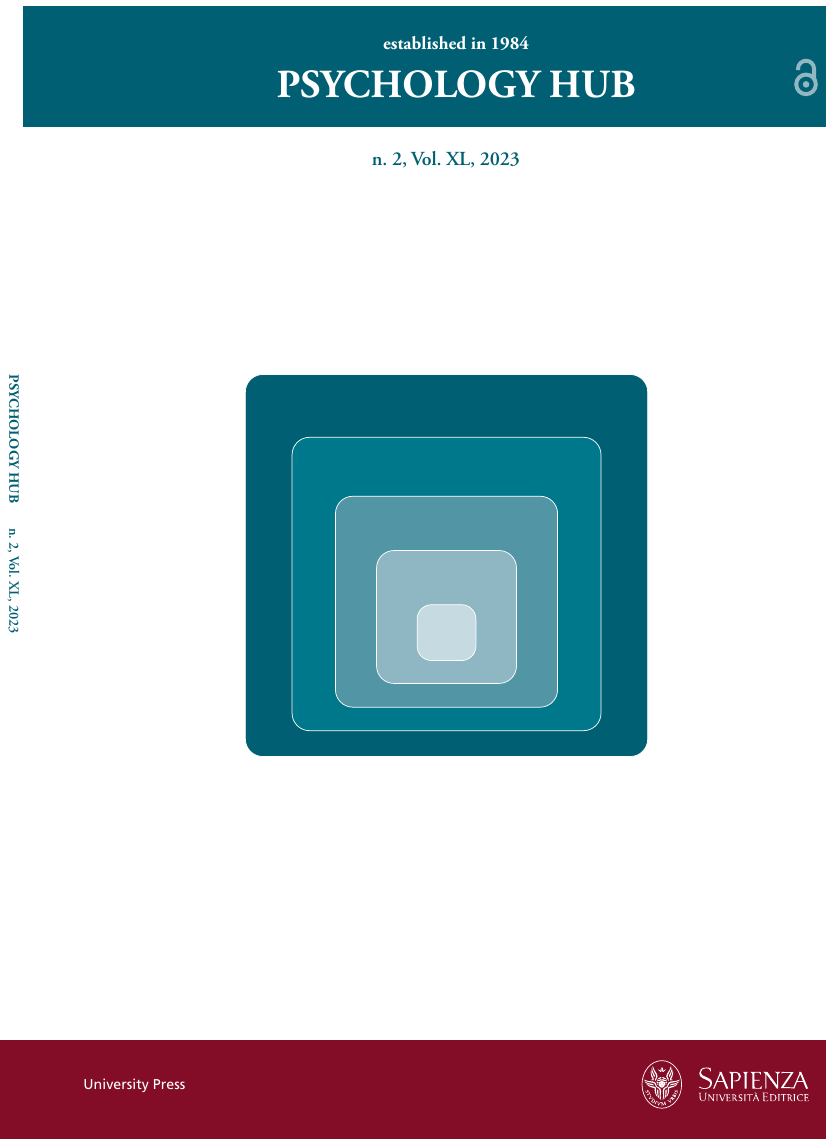Online risks related to suicidal thoughts: A cross-sectional study with a sample of Italian students
Online risks related to suicidal thoughts
DOI:
https://doi.org/10.13133/2724-2943/17824Keywords:
internet risks, internet safety, technology, harmful contents, suicidal ideation, suicidalityAbstract
The aims of the present study were to expand scientific evidence on exposure to online risks (i.e., contact and content risks) as well as to analyse associations between exposure to online risks and suicidal thoughts. The sample comprised 141 adolescent students (58.2% males, n= 82) with a mean age of 14.05 years (standard deviation= 1.42). Data were collected using questions adapted from the EU Kids online survey, the Body Investment Scale, the Children Depression Inventory 2 (Short), the Internet Disorder Scale and one item of the Brief Symptom Inventory for suicidal thoughts. Bivariate and multivariable associations were tested to explore the relationships between online risks and the absence/presence of suicidal thoughts.
Sixty-five percent of the sample reported at least one online risk. Online risks, in order of frequency, were the following: hate messages (43%), violent images (42%), drug experiences (22%), ways of hurting oneself (21%), committing suicide (16%) and being very thin (15%). One in ten (n= 14) participants experienced suicidal thoughts. Exposure to online content on ways of physically harming oneself, committing suicide, experiences of taking drugs, and increasing number of online risks were associated with suicidal thoughts even when controlling for body investment, symptoms of depression and problematic internet use.
Mental health professionals need to carefully investigate the way in which young patients use the Internet, with the awareness that specific online experiences may be indicative of the presence of suicidal thoughts.
Additional Files
Published
How to Cite
Issue
Section
License
Copyright (c) 2023 Psychology Hub

This work is licensed under a Creative Commons Attribution-NonCommercial-ShareAlike 4.0 International License.





